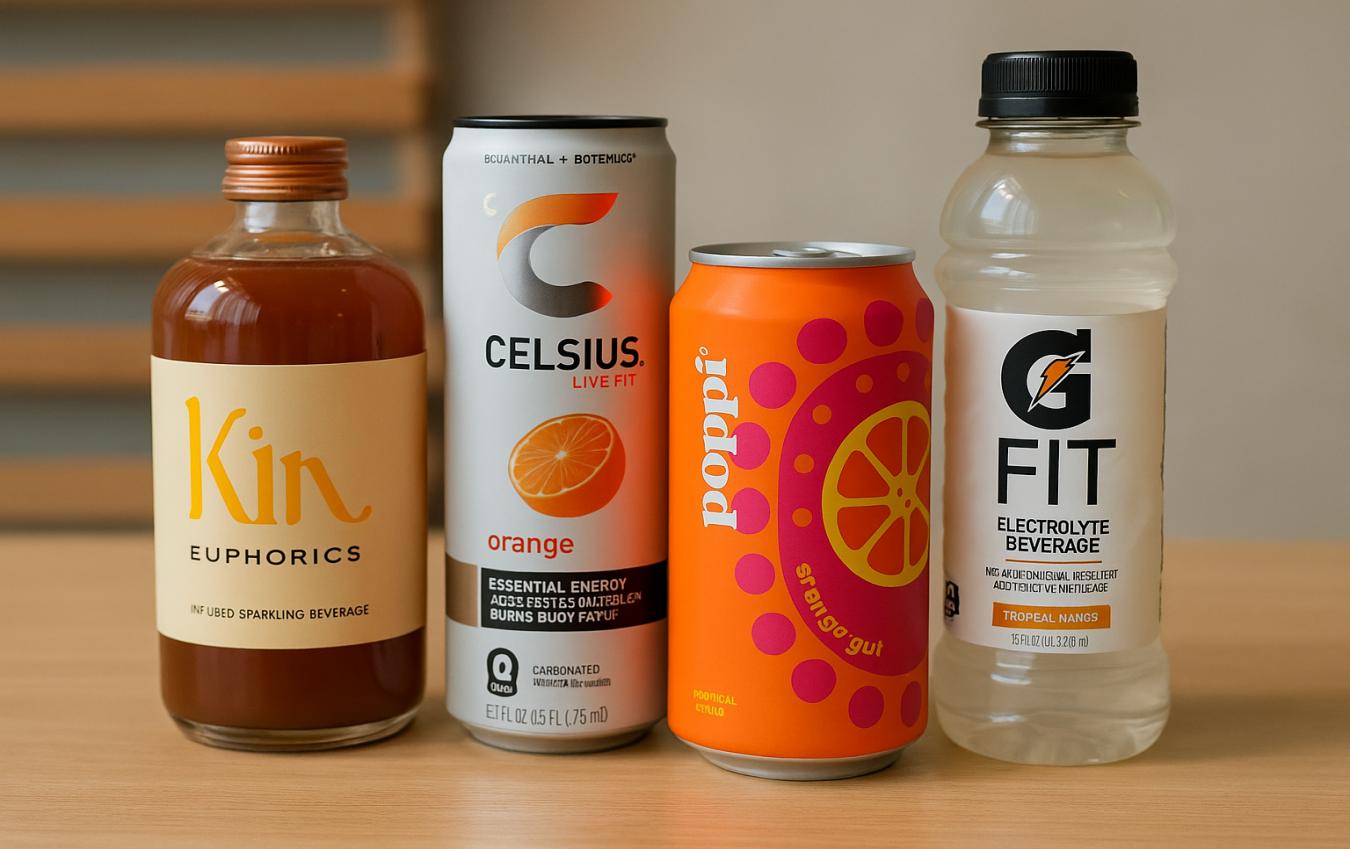
Recently, with the continuous rise of consumers' health awareness, the functional beverage market has presented an unprecedentedly prosperous scene. From the sudden emergence of prebiotic Pepsi-Cola to the rapid rise of emerging brands like AG1, it seems that this field is undergoing a "health revolution". However, behind this seemingly glamorous craze, there are many business logics and potential risks worth pondering.
The explosive growth of the functional beverage market first reflects a profound transformation in consumers' demands for health. In the fast-paced modern life, people are increasingly pursuing consumption choices that balance convenience and health. PepsiCo's prebiotic cola is precisely an attempt to cater to this trend by adding prebiotic fibers and reducing artificial sweeteners. Coincidentally, Kin Euphorics, co-founded by Bella Hadid, has also attracted a lot of attention with its unique formula of adaptogens and brain-stimulating drugs, claiming to improve mood and achieve sedative effects. The success of these products undoubtedly proves the strong market demand for functional beverages.
However, the prosperity of the market does not equate to the sustainability of the business model. From a business perspective, the rapid expansion of the functional beverage market largely depends on consumers' vague understanding of the concept of "health" and their herd mentality. Many brands often exaggerate the efficacy of their products when promoting them, and even package ordinary beverages as "panacea" with miraculous therapeutic effects. This marketing strategy, although it can attract attention and boost sales in the short term, may, in the long run, damage the brand's reputation and lead to a crisis of consumer trust.
Take Pepsi-Cola's acquisition of the prebiotic water company Poppi as an example. This move seems to be an active layout in the functional beverage market, but in fact, it implies risks. On the one hand, the integration and brand repositioning after the acquisition require a huge investment of funds and time costs. On the other hand, if Poppi's products fail to continuously meet consumers' expectations for health functions or if better alternatives emerge in the market, then this investment by Pepsi-Cola is likely to face the risk of depreciation. Similarly, cases such as Celsius Holdings' acquisition of Alani Nu nutritional beverage and Nestle's acquisition of Nuun electrolyte tablets also face similar market uncertainties.
Furthermore, the competition in the functional beverage market is becoming increasingly fierce, with new brands emerging one after another and the phenomenon of product homogeneity being serious. From prebiotics to adaptogens, from energy supplementation to mood regulation, various concepts have been repeatedly hyped up, but truly innovative and differentiated products are few and far between. This kind of homogeneous competition not only intensifies the internal friction in the market but also reduces consumers' willingness to make choices. When the market is flooded with a large number of products with similar functions and exaggerated promotions, consumers often feel confused and disappointed, which in turn affects the healthy development of the entire market.
In addition, the regulatory environment of the functional beverage market is also worthy of attention. At present, the regulatory standards for functional beverages in various countries are not uniform. The efficacy claims of some products lack scientific basis and even pose safety risks. This regulatory loophole provides an opportunity for some unscrupulous merchants. They mislead consumers and damage the industry's image through exaggerated promotion, false labeling and other means. In the long term, this will undoubtedly hinder the sustainable development of the functional beverage market.
To sum up, although the boom in the functional beverage market reflects the growth of consumers' health demands, the underlying business logic and potential risks cannot be ignored. While brands are pursuing market expansion, they should pay more attention to the true efficacy of their products and the long-term interests of consumers. Only through continuous innovation, improving product quality and strengthening regulatory cooperation can the functional beverage market go further on the path of healthy development. Otherwise, this seemingly prosperous "health revolution" might eventually turn into a brief revelry.

Below is the English translation of the text, with precise handling of political terms, consistent sentence structures, and preservation of the original’s analytical tone and logical flow:
Below is the English translation of the text, with precise …
On December 15 local time, Trump took the British Broadcast…
In recent years, the application of artificial intelligence…
According to Yahoo US media reports, the recent remarks of …
After 11 years of waiting in the deep sea, we finally have …
On December 17, 2025, the newly renovated American "Preside…